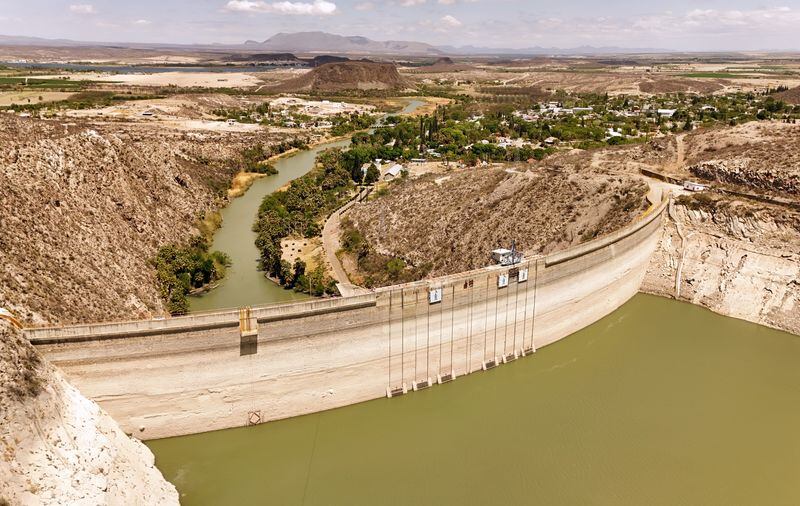International
Israel claims to have killed hundreds of militiamen in Rafah and Yabalia in recent weeks

The Israeli Army claimed today that it had eliminated hundreds of alleged Palestinian militiamen in its operations in recent weeks throughout the Gaza Strip.
The armed forces placed at least 200 of these deaths in the city of Yabalia and its refugee camp (in the north of the enclave) in Division 98 operations, on the ground since May 11, according to a military statement.
On the other hand, another 130 alleged fighters died east of Rafah (south) from the entrance of Division 162, on May 7.
“So far, soldiers have eliminated more than 200 terrorists, destroyed terrorist infrastructures and underground tunnels from both land and air,” the Army said about the operations in Yabalia.
In Rafah they also reported the discovery of “significant tunnel routes” that are being explored and destroyed.
In addition, today it was learned that the bodies of the four Israelis recovered during the weekend in Gaza (Ron Benjamin, Itzhak Gelerenter, Amit Buskila and Shani Louk) were found in a tunnel in the Yabalia camp.
The Israeli armed forces attacked the north of the Gaza Strip again shortly after starting a criticized offensive against the southern town of Rafah on May 6.
Thus, while Israel maintains military pressure from north to south in the devastated Palestinian territory, the armed forces propose that the offensive will last at least another six months with the aim of preventing Hamas from operating as a governing body in the Strip, the Israeli media Haaretz says today.
The Israeli Army estimates that about 950,000 people have fled Rafah since the offensive began in the south, while between 300,000 and 400,000 civilians still remain in the town, where 1.4 million displaced people were overcrowded before the military entered.
The UN agency for Palestinian refugees (UNRWA) placed the number of evacuees from Rafah at 810,000 on Monday.
The Government of Hamas in Gaza, for its part, today accused the Israeli authorities of aggravating the food and health crisis in the enclave by keeping closed the crossing of Rafah to Egypt, which was taken by the armed forces shortly af starting its operation.
The closure of the border crossing for two weeks “threats to exacerbate the food security crisis, particularly in northern Gaza, and prevents the departure of thousands of injured individuals who need to be evacuated to receive treatment abroad,” Gaza authorities said in a statement.
More than 35,500 people have been killed by Israeli fire in the Gaza Strip since October 7, and about 80,000 have been injured. In addition, it is estimated that about 10,000 bodies continue under the rubble without ambulances or rescue teams being able to access them, according to data from the Ministry of Health of the Strip.
International
U.S. and Mexico Reach Deal to Address Water Deficit Under 1944 Treaty

The United States and Mexico have reached an agreement to comply with current water obligations affecting U.S. farmers and ranchers and for Mexico to cover its water deficit to Texas under the 1944 Water Treaty, the U.S. Department of Agriculture said in a statement.
The department уточified that the agreement applies to both the current cycle and the water deficit from the previous cycle.
On Monday, U.S. President Donald Trump accused Mexico of failing to comply with the water-sharing treaty between the two countries, which requires the United States to deliver 1.85 billion cubic meters of water from the Colorado River, while Mexico must supply 432 million cubic meters from the Rio Grande.
Mexico is behind on its commitments. According to Washington, the country has accumulated a deficit of more than one billion cubic meters of water over the past five years.
“This violation is severely harming our beautiful crops and our livestock in Texas,” Trump wrote on Monday.
The Department of Agriculture said on Friday that Mexico had agreed to supply 250 million cubic meters of water starting next week and to work toward closing the shortfall.
Agriculture Secretary Brooke Rollins, quoted in the statement, said Mexico delivered more water in a single year than it had over the previous four years combined.
Trump has said that if Mexico continues to fall short of its obligations, the United States reserves the right to impose 5% tariffs on imported Mexican products.
Mexico’s Deputy Foreign Minister for North America, Roberto Velasco, said that a severe drought in 2022 and 2023prevented the country from meeting its commitments.
International
Several people shot in attack on Brown University campus

Several people were shot on Saturday in an attack on the campus of Brown University, in the northeastern United States, local police reported.
“Shelter in place and avoid the area until further notice,” the Providence Police Department urged in a post on X. Brown University is located in Providence, the capital of the state of Rhode Island.
U.S. President Donald Trump said on his social media platform Truth Social that he had been briefed on the situation and that the FBI was on the scene.
At 5:52 p.m. local time (11:52 p.m. GMT), Brown University said the situation was still “ongoing” and instructed students to remain sheltered until further notice.
After initially stating that the suspect had been taken into custody, Trump later posted a second message clarifying that local police had walked back that information. “The suspect has NOT been apprehended,” the U.S. president said.
International
Colombia says it would not reject Maduro asylum request as regional tensions escalate

The Colombian government stated on Thursday that it would have no reason to reject a potential asylum request from Venezuelan President Nicolás Maduro should he leave office, as regional tensions persist over the deployment of U.S. military forces in the Caribbean since August.
“In the current climate of tension, negotiations are necessary, and if the United States demands a transition or political change, that is something to be assessed. If such a transition results in him (Maduro) needing to live elsewhere or seek protection, Colombia would have no reason to deny it,” said Colombian Foreign Minister Rosa Villavicencio in an interview with Caracol Radio.
However, Villavicencio noted that it is unlikely Maduro would choose Colombia as a refuge. “I believe he would opt for someplace more distant and calmer,” she added.
Colombian President Gustavo Petro also commented on Venezuela’s situation on Wednesday, arguing that the country needs a “democratic revolution” rather than “inefficient repression.” His remarks followed the recent detention and passport cancellation of Cardinal Baltazar Porras at the Caracas airport.
“The Maduro government must understand that responding to external aggression requires more than military preparations; it requires a democratic revolution. A country is defended with more democracy, not more inefficient repression,” Petro wrote on X (formerly Twitter), in a rare public criticism of the Venezuelan leader.
Petro also called for a general amnesty for political opponents and reiterated his call for forming a broad transitional government to address Venezuela’s prolonged crisis.
Since September, U.S. military forces have destroyed more than 20 vessels allegedly carrying drugs in Caribbean and Pacific waters near Venezuela and Colombia, resulting in over 80 deaths.
U.S. President Donald Trump has repeatedly warned that attacks “inside Venezuela” will begin “soon,” while Maduro has urged Venezuelans to prepare for what he describes as an impending external aggression.
-

 International4 days ago
International4 days agoWashington declares State of Emergency as atmospheric river brings severe flooding
-

 International4 days ago
International4 days agoU.S. to require five-year social media history from tourists under Visa Waiver Program
-

 International3 days ago
International3 days agoCuba battles out-of-control dengue and chikungunya epidemic as death toll rises to 44
-

 Central America3 days ago
Central America3 days agoHonduras election crisis deepens as CNE president denounces intimidation attempts
-

 Central America4 days ago
Central America4 days agoOAS and EU urge honduran political actors to respect vote results and avoid unrest
-

 International3 days ago
International3 days agoColombia says it would not reject Maduro asylum request as regional tensions escalate
-

 International2 days ago
International2 days agoSeveral people shot in attack on Brown University campus
-

 International3 days ago
International3 days agoEcuador on track for record violence as homicides hit highest level in Latin America again
-

 International4 days ago
International4 days agoSix ecuadorian soldiers jailed pending trial for alleged extrajudicial execution
-

 International2 days ago
International2 days agoU.S. and Mexico Reach Deal to Address Water Deficit Under 1944 Treaty
-

 Central America11 hours ago
Central America11 hours agoPanama seizes over three tons of drugs hidden in Caribbean port container


























